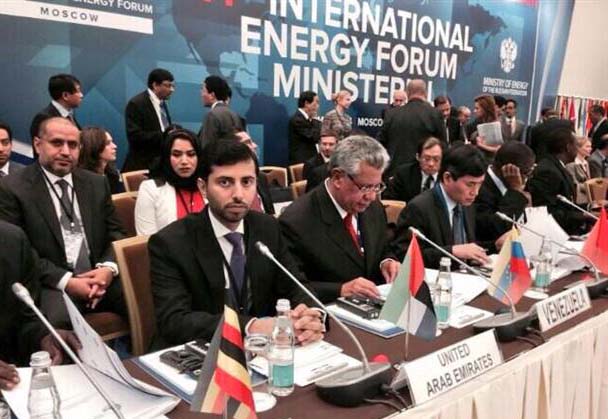ID :
329032
Sun, 05/18/2014 - 09:57
Auther :
Shortlink :
https://www.oananews.org//node/329032
The shortlink copeid
Transition to a low-carbon economy is transformative rather than reformative: Al Mazrouei

Moscow (WAM): Transition to a low-carbon economy, which based on techniques and applications to secure clean energy, is a transformative rather than reformative process, according to UAE Minister of Energy.
Suhail bin Mohammed Al Mazrouei, told a Plenary Session of the International Energy Forum Ministerial Meeting in Moscow on ''Transition to a Low-Carbon Economy: Realistic Goal or Science Fiction'', about the UAE's experiments and initiatives to reduce carbon dioxide emissions.
These initiatives, he said, had paid off and significantly lowered these emissions.
The UAE, the minister added, is currently undertaking fast-paced efforts towards diversifying energy sources and seeks to achieve a proportion of clean energy of up to 24% of the overall energy in the UAE by 2021.
It also plans to reduce carbon dioxide emissions by 15%.
He stressed the need for collective international efforts to lower carbon dioxide emissions and encourage trends towards the green economy.
On the margin of the forum, the UAE minister met with ministers of oil and energy of Russia, Kuwait and Afghanistan and the secretary general of the Gas Exporting Countries Forum (GECF).
Held from 15 to 16 May under the themed: "The New Geography of Energy and the Future of Global Energy Security," the forum gathered some 101 delegates including IEF ministers, their officials, energy industry executives, and other experts engage in a dialogue of increasing importance to global energy security.
According to the IEA Medium-Term Renewable Energy Market Report 2013, renewable power generation grew 5.5% annually from 2006-13, and is expected to rise by around 40% up to 6850 Terawatt hours (TWh) in the next five years. By 2018 the share of renewable electricity will account for a quarter of the global power mix, up from 20% in 2011. By 2016 global renewable electricity generation will overtake that of gas and be twice that of nuclear, making renewables the second most important source of electricity after coal.
In its concluding statement, the two-day energy forum expects world demand for oil to hover in the range of 90 million and 110 million bpd in 2035 and that the supply and demand curves will remain to be a causal factor for market instability and national energy policies.
It laid stress on supporting and funding renewable energy and clean energy projects, mainly solar and wind powers.
The statement called for introduction and application of IT in energy sector.
The world must get ready for a possible shift in energy flow in the tens years to come. – Emirates News Agency, WAM





